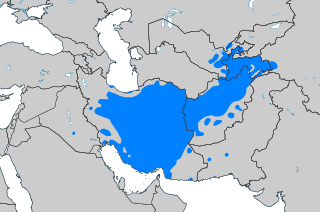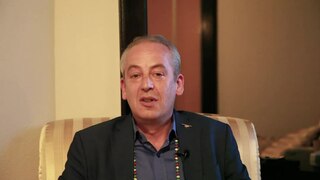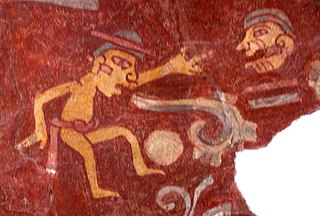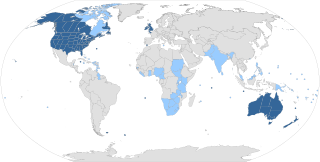
Arabic is a Semitic language that first emerged in the 1st to 4th centuries CE. It is now the lingua franca of the Arab world. It is named after the Arabs, a term initially used to describe peoples living in the area bounded by Mesopotamia in the east and the Anti-Lebanon mountains in the west, in Northwestern Arabia and in the Sinai Peninsula. The ISO assigns language codes to thirty varieties of Arabic, including its standard form, Modern Standard Arabic, also referred to as Literary Arabic, which is modernized Classical Arabic. This distinction exists primarily among Western linguists; Arabic speakers themselves generally do not distinguish between Modern Standard Arabic and Classical Arabic, but rather refer to both as al-ʿarabiyyatu l-fuṣḥā or simply al-fuṣḥā (اَلْفُصْحَىٰ). Modern Standard Arabic is an official language of 26 states and 1 disputed territory, the third most after English and French

C is a general-purpose, procedural computer programming language supporting structured programming, lexical variable scope, and recursion, with a static type system. By design, C provides constructs that map efficiently to typical machine instructions. It has found lasting use in applications previously coded in assembly language. Such applications include operating systems and various application software for computer architectures that range from supercomputers to PLCs and embedded systems.

French is a Romance language of the Indo-European family. It descended from the Vulgar Latin of the Roman Empire, as did all Romance languages. French evolved from Gallo-Romance, the Latin spoken in Gaul, and more specifically in Northern Gaul. Its closest relatives are the other langues d'oïl—languages historically spoken in northern France and in southern Belgium, which French (Francien) largely supplanted. French was also influenced by native Celtic languages of Northern Roman Gaul like Gallia Belgica and by the (Germanic) Frankish language of the post-Roman Frankish invaders. Today, owing to France's past overseas expansion, there are numerous French-based creole languages, most notably Haitian Creole. A French-speaking person or nation may be referred to as Francophone in both English and French.

Persian, also known by its endonym Farsi, is a Western Iranian language belonging to the Iranian branch of the Indo-Iranian subdivision of the Indo-European languages. Persian is a pluricentric language predominantly spoken and used officially within Iran, Afghanistan and Tajikistan in three mutually intelligible standard varieties, namely Iranian Persian, Dari Persian and Tajiki Persian. It is also spoken natively in the Tajik variety by a significant population within Uzbekistan, as well as within other regions with a Persianate history in the cultural sphere of Greater Iran. It is written officially within Iran and Afghanistan in the Persian alphabet, a derivation of the Arabic script, and within Tajikistan in the Tajik alphabet, a derivation of Cyrillic.

German is a West Germanic language mainly spoken in Central Europe. It is the most widely spoken and official or co-official language in Germany, Austria, Switzerland, South Tyrol in Italy, the German-speaking Community of Belgium, and Liechtenstein. It is one of the three official languages of Luxembourg and a co-official language in the Opole Voivodeship in Poland. The German language is most similar to other languages within the West Germanic language branch, including Afrikaans, Dutch, English, the Frisian languages, Low German/Low Saxon, Luxembourgish, Scots, and Yiddish. It contains close similarities in vocabulary to Danish, Norwegian and Swedish, although they belong to the North Germanic group. German is the second most widely spoken Germanic language, after English.

Greek is an independent branch of the Indo-European family of languages, native to Greece, Cyprus, Albania, other parts of the Eastern Mediterranean and the Black Sea. It has the longest documented history of any living Indo-European language, spanning at least 3,400 years of written records. Its writing system has been the Greek alphabet for the major part of its history; other systems, such as Linear B and the Cypriot syllabary, were used previously. The alphabet arose from the Phoenician script and was in turn the basis of the Latin, Cyrillic, Armenian, Coptic, Gothic, and many other writing systems.

Hindi, or more precisely Modern Standard Hindi, is an Indo-Aryan language spoken chiefly in India. Hindi has been described as a standardised and Sanskritised register of the Hindustani language, which itself is based primarily on the Khariboli dialect of Delhi and neighbouring areas of Northern India. Hindi, written in the Devanagari script, is one of the two official languages of the Government of India, along with the English language. It is an official language in 9 States and 3 Union Territories and an additional official language in 3 other States. Hindi is also one of the 22 scheduled languages of the Republic of India.

The Indo-European languages are a large language family native to western and southern Eurasia. It comprises most of the languages of Europe together with those of the northern Indian subcontinent and the Iranian Plateau. A few of these languages, such as English, French, Portuguese, and Spanish, have expanded through colonialism in the modern period and are now spoken across several continents. The Indo-European family is divided into several branches or sub-families, the largest of which are the Indo-Iranian, Germanic, Romance, and Balto-Slavic groups. The most populous individual languages within them are Spanish, English, Hindustani (Hindi/Urdu), Portuguese, Bengali, Marathi, Punjabi, German, and Russian, each with over 100 million speakers. French, Italian, and Persian have more than 50 million each. In total, 46% of the world's population speaks an Indo-European language as a first language, by far the highest of any language family. There are about 445 living Indo-European languages, according to the estimate by Ethnologue, with over two thirds (313) of them belonging to the Indo-Iranian branch.
Japanese is an East Asian language spoken by about 128 million people, primarily in Japan, where it is the national language. It is a member of the Japonic language family, and its relation to other languages, such as Korean, is debated. Japonic languages have been grouped with other language families such as Ainu, Austroasiatic, and the now-discredited Altaic, but none of these proposals has gained widespread acceptance.

A language is a structured system of communication used by humans. Languages consist of spoken sounds in spoken languages or written elements in written languages. Additionally, a language may consist of other symbolic elements like hand gestures in sign languages.
Python is an interpreted, high-level and general-purpose programming language. Python's design philosophy emphasizes code readability with its notable use of significant whitespace. Its language constructs and object-oriented approach aim to help programmers write clear, logical code for small and large-scale projects.

Russian is an East Slavic language native to the Russians in Eastern Europe. It is an official language in Russia, Belarus, Kazakhstan, Kyrgyzstan, as well as being widely used throughout the Caucasus, Central Asia and to some extent in the Baltic states. Russian belongs to the family of Indo-European languages, one of the four living members of the East Slavic languages alongside, and part of the larger Balto-Slavic branch. There is a high degree of mutual intelligibility between Russian, Belarusian and Ukrainian.

Sanskrit is a classical language of South Asia belonging to the Indo-Aryan branch of the Indo-European languages. It arose in South Asia after its predecessor languages had diffused there from the northwest in the late Bronze Age. Sanskrit is also the sacred language of Hinduism, the language of classical Hindu philosophy, and of historical texts of Buddhism and Jainism. It was a link language in ancient and medieval South Asia, and upon transmission of Hindu and Buddhist culture to Southeast Asia, East Asia and Central Asia in the early medieval era, it became a language of religion and high culture, and of the political elites in some of these regions. As a result, Sanskrit had a lasting impact on the languages of South Asia, Southeast Asia and East Asia, especially in their formal and learned vocabularies.

Tamil is a Dravidian language natively spoken by the Tamil people of South Asia. Tamil is the official language of the Indian state of Tamil Nadu, as well as two sovereign nations, Singapore and Sri Lanka. In India, it is also the official language of the Union Territory of Puducherry. Tamil is spoken by significant minorities in the four other South Indian states of Kerala, Karnataka, Andhra Pradesh and Telangana and the Union Territory of the Andaman and Nicobar Islands. It is also spoken by the Tamil diaspora found in many countries, including Malaysia, South Africa, United Kingdom, United States, Canada, and Australia. Tamil is also natively spoken by Sri Lankan Moors.

Urdu is an Indo-Aryan language spoken chiefly in South Asia. It is the official national language and lingua franca of Pakistan. In India, Urdu is an Eighth Schedule language whose status, function, and cultural heritage is recognized by the Constitution of India; it has some form of official status in several Indian states.

C++ is a general-purpose programming language created by Bjarne Stroustrup as an extension of the C programming language, or "C with Classes". The language has expanded significantly over time, and modern C++ now has object-oriented, generic, and functional features in addition to facilities for low-level memory manipulation. It is almost always implemented as a compiled language, and many vendors provide C++ compilers, including the Free Software Foundation, LLVM, Microsoft, Intel, Oracle, and IBM, so it is available on many platforms.

Multilingualism is the use of more than one language, either by an individual speaker or by a group of speakers. It is believed that multilingual speakers outnumber monolingual speakers in the world's population. More than half of all Europeans claim to speak at least one language other than their mother tongue; but many read and write in one language. Always useful to traders, multilingualism is advantageous for people wanting to participate in globalization and cultural openness. Owing to the ease of access to information facilitated by the Internet, individuals' exposure to multiple languages is becoming increasingly possible. People who speak several languages are also called polyglots.

Google Translate is a free multilingual neural machine translation service developed by Google, to translate text and websites from one language into another. It offers a website interface, a mobile app for Android and iOS, and an application programming interface that helps developers build browser extensions and software applications. As of January 2021, Google Translate supports 109 languages at various levels and as of April 2016, claimed over 500 million total users, with more than 100 billion words translated daily.

English is a West Germanic language first spoken in early medieval England which eventually became the leading language of international discourse in today's world. It is named after the Angles, one of the ancient Germanic peoples that migrated to the area of Great Britain that later took their name, England. Both names derive from Anglia, a peninsula on the Baltic Sea. English is most closely related to Frisian and Low Saxon, while its vocabulary has been significantly influenced by other Germanic languages, particularly Old Norse, as well as Latin and French.

















